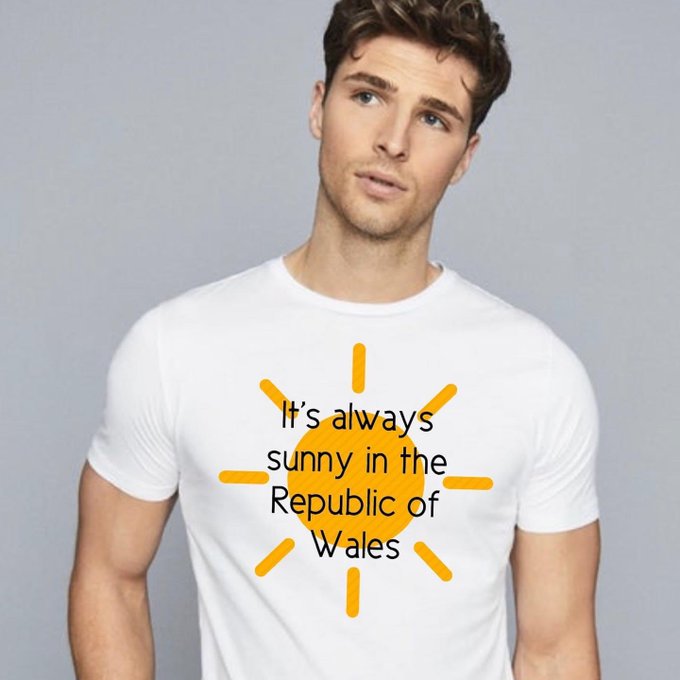
A few days ago a distracted weather presenter on Sky News, missing out a few words of her script, uttered the phrase ‘Republic of Wales’. The news spread quickly round Twitter. There was wide agreement that the phrase had a highly appealing ring to it. So, too, the Welsh version, Gweriniaeth Cymru. Since then I’ve been daydreaming about what a Republic of Wales might look like if it came into being. In October 2020, it’s worth saying, this looks a slightly less unlikely event than it did a few months ago, as the Westminster government seems to be working ever harder to bring about the dissolution of the United Kingdom.
My Republic of Wales would be based on a few simple principles.

To begin with, of course it would be independent from the rest of the UK. I’ve argued elsewhere, from a non-nationalist perspective, why an independent Wales is now an urgent priority for anyone who embraces the revolutionary idea that a government might be expected to act in the interests of all its citizens. Westminster – corrupt, ineffective and uncaring – is very unlikely to be able to reform itself. This doesn’t mean that the Republic would be sovereign, that totem-word of Brexit zealots. They delude themselves that our relations with the rest of the world can be restricted to what we can extract from others in ‘free trade’. But in the 21st century no country can avoid sharing power with others – certainly if there’s to be any hope of avoiding ecological catastrophe. Our Republic would try ally its policies and share its resources with other countries in common cause, instead of cutting itself off from its neighbours.

Second, it would be a republic. That is, we’d have an elected non-executive President, rather than a royal family. Probably Scotland would go the same way, so the monarch would revert to being called Queen of England. That historic title would probably satisfy most monarchists better than ‘Queen of the United Kingdom and an Ever-Decreasing Number of Commonwealth Countries’. At a stroke one of the culturally hegemonic foundations of deference and class would be gone. Lest anyone claim that this change would mean being saddled with Katherine Jenkins or Vinnie Jones as our President, I’d point to the Irish Republic. The last three Presidents, Mary Robinson, Mary McAleese and Michael D. Higgins, have been exemplary leaders of their country – intelligent, humane and able to speak for all, especially at times of crisis or sorrow.
Next, my Republic would restore and safeguard the public realm. The word ‘republic’ comes from the Latin ‘res publica’ or ‘the sphere that belongs to the people’. For forty years our rulers have habituated us to the idea that the public sphere is an evil, to be denigrated and shrunk, its power and resources gifted to the ‘more efficient market’ through privatisation, outsourcing and many other devices. There’s no better current example than the £12bn Coronovirus ‘test and trace’ system in England. Instead of using public services, the UK government handed its control, without due process, to Serco, Deloitte, McKinsey and other large facilities companies completely lacking in specialist expertise. It took care to disguise the system with the misleading label ‘NHS Test & Trace’, so that the NHS would get the blame when the system failed. There are many services that should be part of the public sphere because that are too critical to the well-being of everybody to be left to the hazards and inequalities of the market. Our new Republic would restore and protect them, as our ‘common wealth’. (‘Commonwealth of Wales’, come to think of it, would be a decent alternative to ‘Republic of Wales’.)

Finally, our new state would treat politics seriously, and democratise it. Plato’s ideal Republic, in the fourth century BCE, was to be governed by philosopher-kings. Plato was no democrat, but he was convinced that the state must be governed by people who ruled seriously and wisely in the interests of all citizens. Today, by contrast, the government of the UK is in the hands of incompetent, unprincipled, self-serving extremists, who treat politics as a continuation of their adolescent school games. Their words and actions have (probably deliberately) weakened trust in politics and the political process. State cynicism breeds public cynicism and, worse, indifference. Our own ideal Republic would aim to restore the old Platonic idea that politics is a serious, grown-up business, where trust is an important glue between governors and governed, especially at times of crisis. Fortunately, it’s an ideal still half-alive in Wales: more people have confidence in the Welsh government’s approach to the Coronavirus pandemic than in Westminster’s. But that on its own is far from enough. General engagement in politics in Wales is still miserably narrow and low. A priority of the first Republican government would be to spread debate and participation in public life far wider than ‘The Bay’ and a few Council chambers.
I could go on, but that’s probably enough for the first hundred days of the infant Republic of Wales. Was it all, I wonder, a dream?

Leave a Reply